Primary Years Programme
International Baccalaureate
Primary Years Programme

What is IB PYP?
The International Baccalaureate Primary Years Programme is an inquiry based curriculum framework for children aged 3-12. It uses a transdisciplinary approach to learning by exploring meaningful concepts and real-world issues. It promotes learning through play and inquiry, by provoking each child’s curiosity. The children take part in meaningful learning activities where they are given opportunities to creatively and critically solve real- world problems. The programme focuses on developing life-long learners as the children get to develop an understanding of themselves as a learner through reflection. The programme focuses on students acquiring knowledge of the world around themselves and in developing skills that they will be able to apply in a future that is yet unknown. Through the programme, the children develop attributes that will ensure that they become good global citizens with a responsibility to the planet. The PYP enables the children to have voice, choice and ownership of their learning whilst taking action for the things that they truly believe are right.
The Elements of PYP
There are 5 essential elements to the IB PYP curriculum framework; concepts, skills, knowledge, learner profiles, and action. These elements are interwoven across learning and teaching.

Why choose the IB PYP:
A number of years ago, SBS embarked on a period of reflection centered around the evolution of education and how we can best prepare our children for all the challenges that modern life brings. We asked ourselves the question ‘How do we best prepare our children for a future we know very little about, and in a world that is changing at such a rapid pace?’
It was clear traditional teaching and learning methods of route learning and memorization were not providing children with the best platform to succeed in the modern world. Our desire to provide a modern program of education that is internationally recognized, focussed on skills development, is child centered, and inclusive of the different needs children have, brought us to the IBPYP.
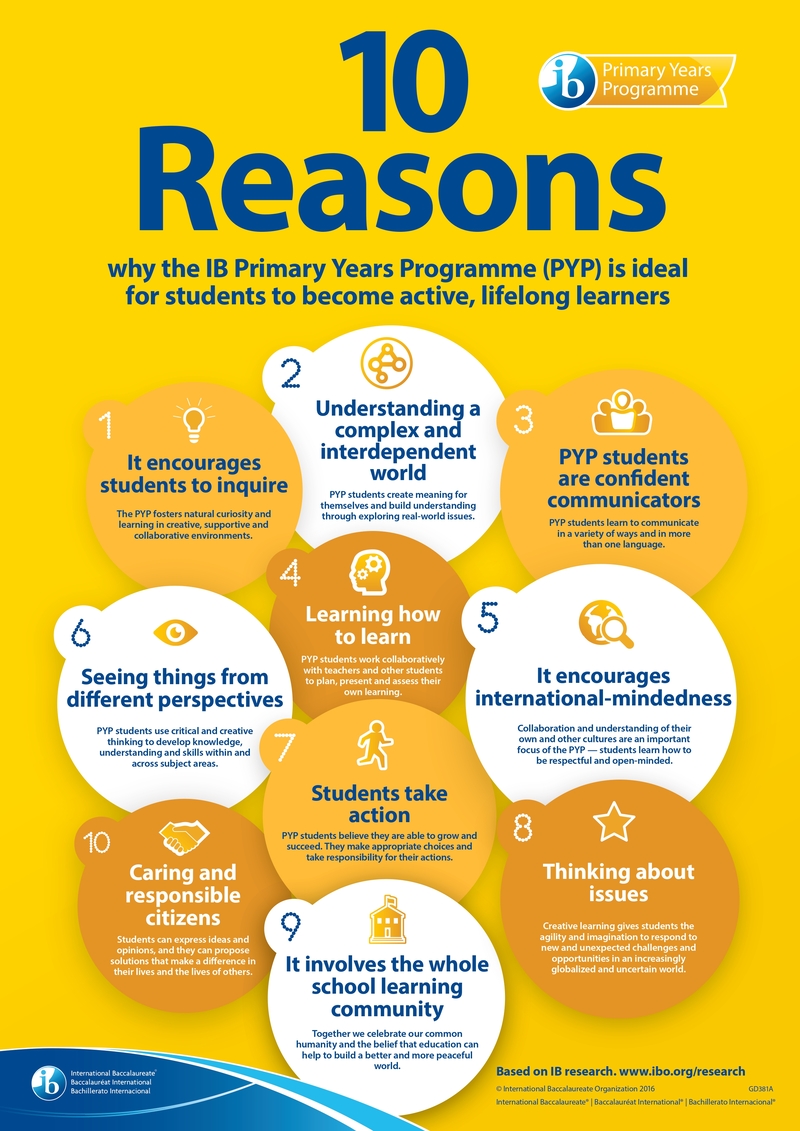
Happy learners
Learning begins at birth, but a sole focus on early literacy doesn’t guarantee better academic outcomes. Instead, what matters most at this point in your child’s development is bilingualism and becoming a happy learner.
At SBS, that means no force feeding of knowledge. This is the age when key emotional and psychological construction is taking place. Your child’s holistic growth is what we focus on.
Activity-Based Learning
We achieve holistic development using the constructivist teaching methodology, which privileges learning through hands-on activities allowing students to build their own knowledge. Little ones may have short attention spans, but their curiosity is boundless. Through a wide range of interactive projects, we ensure our kindergarten students remain constantly stimulated.
Teaching pre-schoolers is therefore approached through themes, rather than subjects. For example, a cooking class could turn into an exploration of biology and basic mathematical awareness, while also developing essential socialization skills such as working with others and following instructions.
Inquiry Based approach to learning
At SBS, we use an inquiry based approach to learning and this emphasizes the role of the learner in the learning process. Unlike traditional schools where a teacher gives the students the information, our students are given opportunities to explore materials, to ask questions and share their thoughts and findings with others.
Inquiry based learning uses many different approaches to learning. The learners are involved in actively finding out things for themselves. Inquiry based learning allows learners to explore concepts and provides an enhanced learning experience for the learners. Through inquiry, our learners develop transferable skills that can be used in learning or in daily life. At SBS, we believe that the best learners are curious learners. Our students are given opportunities to ask questions and make meaningful connections. They are given opportunities to explore areas of interest and make their own connections. This ensures that students have voice, choice and ownership of their work.
Transdisciplinary Themes
At SBS, we use a transdisciplinary approach to learning. This ensures that each child is able to build concepts and skills across subject areas, rather than studying them in isolation. This allows our learners to make deeper connections with their learning and apply their understanding in a variety of contexts.
The IB PYP has six transdisciplinary themes:
- Who we are
- Where we are in place and time
- How we express ourselves
- How the world works
- How we organize ourselves
- Sharing the Planet
These transdisciplinary themes allow our learners to explore concepts beyond the subject areas and truly enhance the learning. Each transdisciplinary unit uncovers concepts of global importance and our learners look for ways to take action to solve real-life issues. At SBS, we provide authentic hands-on learning experiences where our students can develop these transdisciplinary skills and take ownership of their learning.
Key Concepts
The Key Concepts are an important part of the PYP programme and are vital to each unit of inquiry.
- Form - What is it?
- Function - How does it work?
- Causation - Why is it like it is?
- Change - How is it changing?
- Perspective - What are the points of view?
- Responsibility - What is our responsibility?
By using the key concepts our learners are able to think critically about the world around them, ask questions and make connections in their learning.
ATL Skills
The IB Approaches to Learning (ATL’s) are skills that learners develop throughout the learning process.
- Thinking Skills
- Self-management skills
- Communication skills
- Social Skills
- Research Skills
Each category is broken down into several sub-skills. At SBS, our learners are working on developing these sub-skills to become independent learners
Action
Student action is an important part of the PYP programme. This is an opportunity for our learners to use the knowledge that they have acquired in their units to drive or bring forth change. Action can be individual, group or whole class led. Action can be big or small. By taking action our learners know that they are responsible local and global citizens with the power to make a change for things they truly believe are right.
Agency
At SBS, we believe that it is important for our learners to have voice choice and ownership of their learning. When learners believe in their ability to make a change then they are more likely to exercise agency. When students are agentive, they:
- Make good choices
- Reflect on their learning
- Set goals
- Take an active role in their learning
- Value the opinions of others
- Share their opinions
- Develop their approaches to learning
- Take part in decision making
- Create shared agreements
- Set up learning spaces
- Make decisions together
The IB Learner Profile Attributes
The 10 IB Learner Profile Attributes are characteristics that promote international mindedness. Our learners strive to develop these attributes as they recognize their responsibility for the Earth and its citizens.
In the PYP Classroom
At SBS our students are given opportunities to collaboratively design and create learning spaces, learning tasks and assessments. Our students are given the responsibility of monitoring their learning by setting goals and actively reflecting on their progress. Each day in the Primary School, we have a 20 minute reflection period built into the timetable where our learners have an opportunity to reflect on their learning. They analyze the goals they have set for themselves and how far they have come to reach them. They set both short term and long term goals.
Action
Student action is an important part of the PYP programme. This is an opportunity for our learners to use the knowledge they have acquired in their units to drive or bring forth change. Action can be individual, group or whole class led. Action can be big or small. By taking action our learners know they are responsible local and global citizens with the power to make a change for things they truly believe are right.
Overview of IBPYP at SBS:At SBS we believe in developing strong, caring internationally minded people.
- Our little ones develop international mindedness by exploring local and international contexts
- Our little ones develop a caring attitude towards the world and want to take positive actions to make it a better place to live
- Our team is made up of experienced and qualified teachers from all over the world
- Our teachers are passionate and believe strongly in the IB PYP Philosophy
- Our teachers are all IB trained
- A wide range of extra-curricular activities to develop talents and passions
- Many opportunities for our learners to share their learning with the wider community; in student led assemblies and events, learning journeys, action projects.
Early Years PYP: Play is the Vehicle for Learning, and Children are the Drivers:
At SBS Kindergarten we honor play as the vehicle for learning. Play is not just a fun activity for children to do as a reward for completing their work. Play is learning, and it has a central role in the development of a child.
Play stimulates and integrates a range of intellectual, social, and creative abilities. As children play they test hypotheses, revise ideas, reflect on lessons learned, and they begin to make sense of the world around them.
At SBS Kindergarten this is achieved through a balance between child-directed play, guided play, and adult-led learning. Young children are naturally curious about the world and by interacting with different kinds of materials, they develop the language needed to share their understanding of the properties of the physical world.
Through play children learn how to learn, how to think, how to problem solve, and how to make friends. During play they make choices, use their voice, and take ownership of their own learning. Play provides the foundations for not only life-long learning, but for future success.
Take a look at some research:
The Strengths of our Kindergarten Program:
- SBS Kindergarten is an IB PYP World School
- Our curriculum meets Thai and International standards
- Our curriculum is mapped with Cambridge International Program
- IB PYP is an integrated curriculum designed to develop skills
- Our students develop native-like proficiency in two languages
- We incorporate a holistic approach to develop the whole child, academically, socially, emotionally and spiritually
- We implement an inquiry based approach to learning that centers around play
- We have state of the art learning spaces that engage and develop children in a variety of ways
- We are a progressive school, with vision on how we can improve learning for all
- We view children as individuals and develop individualized learning targets for the growth of all
- We provide Student Support Services to ensure that the diverse needs of all children are met
- We incorporate continuous, rigorous, and authentic assessment
- Kindergarten has created a set of literacy continuums to develop reading and writing skills from a young age
- Our little ones are encouraged to take ownership of their learning
- Through the learner profiles our littles ones learn to demonstrate a respect for themselves and others
- Our littles ones learn to work collaboratively with others
-
1. Toddler:
The Curriculum Toddler Year Plan
Units of Inquiry (UOI)
In Toddlers children explore 4 units of inquiry across the academic year.
Central Idea:
Communities support one another.
Lines of Inquiry:
- Community helpers
- There is a role for every job
- A community's assistance, both family and community, are essential
Key Concepts:
- Function: Behaviour
- Connection: Relationships
- Perspective
- Responsibility
Learner Profiles:
- Communicator
- Knowledgeable
- Caring
Skills:
- Communication Skills
- Social Skills
- Self Management Skills
Synopsis:
In this unit the central idea is that “Community supports one another”. Our amazing toddlers will explore their environment around them and begin by inquiring into the smallest unit of the community they are familiar with, the family. They will then learn further about what a community is, community helpers, tools community helpers use, and how to be a good community helper.
Central Idea:
Emotions are expressed in a variety of ways.
Lines of Inquiry:
- We express our feelings and needs with words and actions
- Communicate to play, make and keep friends
- Show respect and care for yourselves and others
Key Concepts:
- Perspective
- Reflection
- Connection
- Responsibility
Learner Profiles:
- Communicator
- Caring
- Balanced
Skills:
- Communication Skills
- Social Skills
- Self Management Skills
Synopsis:
The central idea of this unit is “Emotions are expressed in a variety of ways.” Toddlers inquire into, and learn about human feelings through Literacy, Social Studies, Science, Music and Arts. This unit allows students to develop a coherent, in-depth understanding using a learn and play approach.
Central Idea:
We can develop a sense of togetherness by understanding ourselves and others.
Lines of Inquiry:
- Exploring the similarities and differences of our physical appearances
- Telling the facial expressions and body language
- Expressing our likes and dislikes that connects to our essential agreement
Key Concepts:
- Perspective
- Reflection
- Form
Learner Profiles:
- Open-Minded
- Communicator
- Balanced
Skills:
- Thinking:Listen to different points of view; and communicate their learning through action.
- Communication: Body language, listening and working together to develop appropriate rules for a safer and more respectful environment.
- Social: Caring for each other, accepting our differences
Synopsis:
Toddlers will look at themselves in the “mirror” and talk about their likes/dislikes. Are we all the same? As they learn and explore their similarities and differences, and create classroom “Essential Agreements,” they will learn how to work together; “tell” each other’s feelings; come to agreements – and develop the sense of togetherness.
Central Idea:
Habitats are important for survival.
Lines of Inquiry:
- Animal's characteristics
- Animal habitats
- Habitats support animal needs
Key Concepts:
- Function
- Connection
- Causation
Learner Profiles:
- Inquirer
- Risk-taker
- Communicator
Skills:
- Thinking
- Communication
- Research
- Self-Management
Synopsis:
In this unit the central idea is that, “Habitats are important for survival”. The amazing toddlers will take nature walks and use their senses to observe animals, their characteristics, movements and habitats. They will compare and classify the animals that live in their respective habitats. They will connect their findings to show how animals react and live in their habitats.
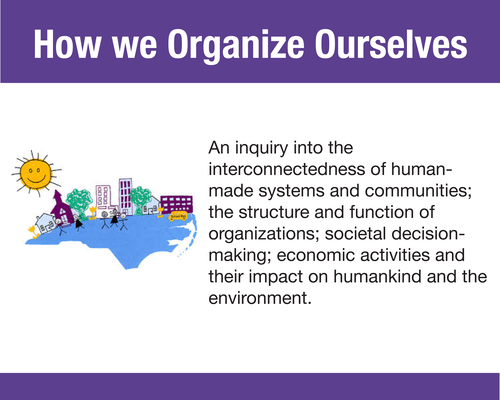
During this unit, we encourage our little learners to be a communicator as they share the kind of job their parents have and their future dreams or jobs to be. This unit also helps to promote their caring profile and enhance their understanding of social skills as they interact with people and friends during role play as a part of their learning experiences.
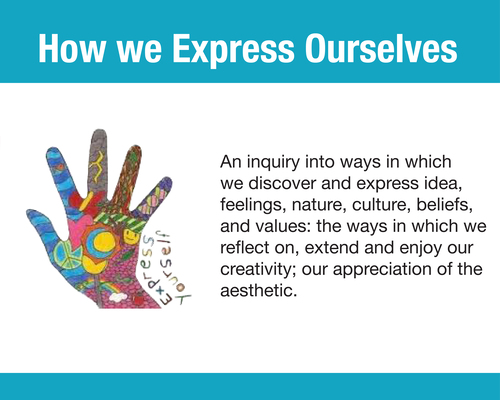
The very young learners will begin using appropriate words to let friends know how they’re feeling – and to “tell” how others are feeling. They will choose new playmates; demonstrate the skills to enter a play situation – and stick with it; make cards or art crafts to share; and draw their feelings.
Our learning activities will be used to help children read or tell facial expressions and body language. At the end of our unit, students will practice the new skills they’ve learned; to express ideas, feelings & emotions; showing empathy to others; solving conflicts with words; and cooperating with friends. They will demonstrate what they have learnt and be caring as they show respect and care for themselves and others.
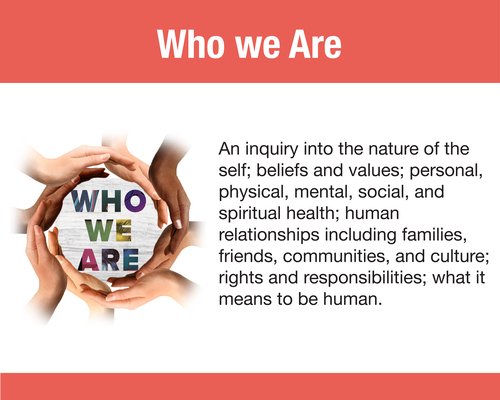
The little learners will take many visits to the playground outside/play gym/play zone inside. They will discover how to use the equipment; take turns; follow rules (they set in the essential agreements); and make sure that everyone is included.
After learning about class likes, dislikes, family structures, etc., students will make art crafts, listen/read the books related to our central idea and be able to identify what similarities and differences they have with each other; and figure out how they all belong in the classroom community.
Children will investigate perspective as they discover that people might react differently to the same situation. They will look at form as they explore similarities and differences with their friends; and they will reflect on their actions in becoming considerate of other students’ facial expressions/body language/feelings.
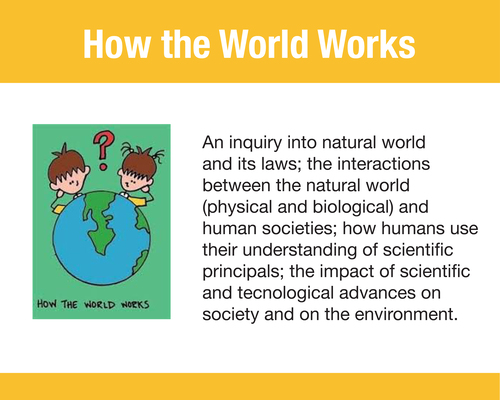
Students will create art crafts related to animals like hand painting, puppet making and animal habitat creation. They will put some animals that live in the habitat they make.
Students will use their research skills when they use their senses to notice distinct animal’s characteristics like animals and their young ones, and food. They will ask questions about what they observe, and record their observations by drawing and through playing. They will also use their self-management skills when they plan and create activities, and by using their time effectively and appropriately.
Faster Learners
“Bilingual kids pick up languages more quickly and easily. My children speak Thai and English fluently and they are also bicultural. Now they’re starting to study Chinese and they’re picking it up effortlessly.“
- Dr. Thitipong Nandhabiwat, father of Dhubdheb, 8, and Bandheb, 3
Early Benefits of Bilingualism
“Bilingualism’s benefits start at a very young age, helping children develop stronger thinking skills, better self-control and improved performance at tasks that require focus, remembering and making decisions.”
- Apiramon Ourairat, Ed.D, Chief Executive Officer
INTERACTIVE CLASSROOM
SBS offers IB PYP from K1 – P5. We teach through a constructivist: process-based learning, interactive learning, information technology literacy and authentic assessment. Our primary programme is where all four pillars first come fully into play. Through process-based learning, your child is encouraged to reflect on learning experiences to create their own knowledge, one that is deeper and more broadly linked. To achieve this, many activities are interactive, or involve collaborative teams, with teachers as facilitators. As a result, children are deeply engaged and connected to the content.
Teaching pre-schoolers is therefore approached through themes, rather than subjects. For example, a cooking class could turn into an exploration of biology and basic mathematical awareness, while also developing essential socialization skills such as working with others and following instructions.
AUTHENTIC ASSESSMENT
With self-evaluation and ongoing individual assessments, your child always knows where they stand, and how to keep getting ahead. This allows our students to meet both Thailand’s academic standards and prepare for the International Baccalaureate. Beyond the metrics, our four pillars also ensure your child develops critical and creative thinking, along with Information Technology (IT) fluency—all essential skills to nurture children who excel at leading, creating and learning.
DIGITAL FLUENCY FROM A YOUNG AGE
“My favorite class is the one where we get to use iPads!”
-Duangtawan Taddeo Majoli Magglioli 8
MAINTAINING STRONG TIES TO BOTH CULTURES
“I like having both Thai and international friends.”
-Prantawan Taddeo Majoli Magglioli, 10
LEADERSHIP AND COMMUNICATION SKILLS
“I like to read and I borrow a lot of books. The library has tons of them. I like the environment here. We can learn outdoors and join in extra-curricular programmes like RSU Wisdom Kids, which is a news programme we do in Thai and English with my classmates.”
-Atiwan Ourairat, 11
ACTIVITY-BASED LEARNING
“I like to make presentations in the computer room. I like to design PowerPoints and search for pictures. I also play tennis. I’m this year’s national champion for singles. And I’ve been the champ for doubles for two years now.”
-Kunanan Pantaratorn, 7
A LOVE OF KNOWLEDGE
“I like my homework. You have to do things. It’s fun. I’m a tennis champion, too. I won the Jumroen Cup for Under 8 Years. But I’m only five!”
-Dharma Pantaratorn, 5
IB PYP School
Satit Bilingual School of Rangsit University is an IB (International Baccalaureate) World School, Primary Years Programme (PYP).
IB World Schools share a common philosophy - a commitment to improve the teaching and learning of a diverse and inclusive community of students by delivering challenging, high quality programmes of international education that share a powerful vision.
For further information about the IB and its programmes, visit www.ibo.org
The International Baccalaureate Primary Years Programme (PYP)
The International Baccalaureate Primary Years Programme (PYP) is an educational programme managed by the International Baccalaureate (IB) for students aged 3 to 12. The subject areas of the PYP are language, social studies, mathematics, science and technology, arts, and personal, social and physical education. Assessment is carried out by teachers according to strategies provided by the IB, and with respect to guidelines to what the students should learn specified in the curriculum model.
Mission statement
The mission statement of the International Baccalaureate is as follows:
"The International Baccalaureate aims to develop inquiring, knowledgeable, and caring young people who help to create a better and more peaceful world through intercultural understanding and respect. To this end, the IB works with schools, governments, and international organizations to develop challenging programmes of international education and rigorous assessment. These programmes encourage students across the world to become active, compassionate, and lifelong learners who understand that other people, with their differences, can also be right."
Educational philosophy
The philosophy of the PYP is to make the students into "inquirers, thinkers, communicators, risk takers, knowledgeable, principled, caring, open-minded, well-balanced, and reflective."
Inquirers: Students develop their natural curiosity.
Knowledgeable: Students explore concepts, ideas and issues that have both a local and global significance.
Thinkers: Students think critically to engage themselves in figuring out complex problems.
Communicators: Students express themselves and information through a variety of modes of communication.
Principled: Students act honestly and with a strong sense of fairness, justice, and respect for the dignity of the individual, groups, and communities.
Open-minded: Students appreciate their own cultures and personal histories and are open to the perspectives, values and traditions of other individuals and communities.
Caring: Students show respect and compassion towards the needs of others.
Risk-takers: Students approach unfamiliar situations with courage, as well as defend their beliefs.
Balanced: Students understand the importance of intellectual, physical and emotional balance to achieve personal well-being.
Reflective: Students give thoughtful consideration to their own learning and experience.
Transdisciplinary themes
In the IBPYP the written curriculum is arranged within six "transdisciplinary themes". While the themes are universal and applicable to all cultures, the expectation is that there are certain core values, skills and knowledge for international schools, students and educators. For example, the international school curriculum should have “global significance—for all students in all cultures."
Who we are: An inquiry into the nature of the self; beliefs and values; personal, physical, mental, social and spiritual health; human relationships including families, friends, communities, and cultures; rights and responsibilities; what it means to be human.
Where we are in place and time: An inquiry into orientation in place and time; personal histories; homes and journeys; the discoveries, explorations and migrations of humankind; the relationships between and the interconnections of individuals and civilizations, from local and global perspectives.
How we express ourselves: An inquiry into the ways in which we discover and express ideas, feelings, nature, culture, beliefs and values; the ways in which we reflect on, extend and enjoy our creativity; our appreciation of the aesthetic.
How the world works: An inquiry into the natural world and its laws; the interaction between the natural world (physical and biological) and human societies; how humans use their understanding of scientific principles; the impact of scientific and technological advances on society and on the environment.
How we organize ourselves: An inquiry into the interconnections of human-made systems and communities; the structure and function of organizations; societal decision-making; economic activities and their impact on humankind and the environment.
Sharing the planet: An inquiry into rights and responsibilities in the struggle to share finite resources with other people and with other living things; communities and the relationships within and between them; access to equal opportunities; peace and conflict resolution.
If you have more questions about PYP, please have a look at our Frequently Asked Questions about Primary Years Programme page
Constructivism as a Method
Constructivism Emphasises Making Discoveries
Constructivist teaching is a based on an educational theory that says children learn by constructing meaning based on their experiences. As children explore, engage with others and reflect on their experiences, they build new levels of understanding. Constructivist teaching emphasises students as active learners and prioritizes exploration and questioning. It's appropriate in kindergarten, as 5-year-olds are naturally curious and trying to make sense of the world. With guidance and encouragement, their love of learning can blossom.
Student Led
Constructivist teaching shifts away from teacher-directed learning to student-led learning. Rather than being the distributor of knowledge, the teacher acts as a guide. The teacher takes cues from student interests and learning styles. Students are encouraged to take initiative and ask questions. For example, in science, student observations and interest in changing autumn leaves might lead to an in-depth study of this topic. Students may collect, sort and categorize leaves. Some activities may originate based on student suggestions. For others, the teacher will guide students to greater understanding, perhaps by reading aloud to help answer questions or suggesting different challenges for sorting.
Using Questions
Student questions are taken seriously and encouraged in constructivist kindergarten classrooms. The teacher will guide students to find the answers to their questions. Students don't come to think of the teacher as the source of all knowledge. They're guided to find answers themselves through exploration, books and discussions. The teacher also uses questions to get students to think more deeply. The teacher may ask students questions to challenge them to consider more possibilities or consider why something happened. For example, when learning about plants in science, the teacher will ask questions such as, "What would happen if we didn't give our plant water?" Students could then do an experiment to find out. This would be followed up with, "Why do you think that happened?"
Assessment
Students are involved in evaluating themselves and assessing their own learning. At the kindergarten level, students need a lot of modeling and guidance to effectively evaluate themselves. Time is given for reflection. The teacher can model self-reflection for students including what was learned and what could be done better. Students do not do a lot of worksheets to be graded. Instead they are graded on academic growth as demonstrated through performance on projects and teacher observations throughout the day. In kindergarten, valuable observations occur during circle time and center time. Mini conferences in which the teacher briefly joins a student to ask about his work can shed light on growth for both teacher and student.
Collaboration
Working together to solve problems is important to creating meaning. In constructivist classrooms, the teacher is not the only expert. Students can learn from each other. When children are solving problems they are given the chance to work together. This allows them to bounce ideas off each other and build meaning. Preconceptions might be challenged. New learning is more likely to occur when children come to understandings themselves. Students take control of their learning and realize they can be experts, too. In kindergarten children are learning beginning addition. When working together to play a game that requires adding the numbers on two dice, students can learn math strategies from each other. One may notice his friend quickly getting an answer by counting up from the larger number. The child may they then try and master this strategy himself. He has built on his knowledge of addition by learning from a peer.
Language Support
We believe every child deserves to reach their potential and therefore provide a variety of support services to help students in need. SBS believes that being bilingual doubles your future opportunities in addition to promoting international mindedness. Each PYP classroom has a Thai and English speaking teacher.
ENGLISH AS AN ADDITIONAL LANGUAGE (EAL)
Students whose first language is not English may be enrolled in our English as an additional Language (EAL) program. This program is tailored to the needs of the student supporting them both in and out of class to communicate their ideas and feelings.
THAI AS AN ADDITIONAL LANGUAGE (TAL)
Students whose first language is not Thai may be enrolled in our Thai as an additional Language (TAL) program. This program is tailored to the needs of the student supporting them both in and out of class to communicate their ideas and feelings.
iPad Integration
iPad INTEGRATION @SBS
Moving beyond enhancing teaching practices, enabling new learning activities, improving engagement, promoting participation, and various other proven “benefits”… information technology has become vital. Technology and internet access have become more important than ever in teaching and learning at SBS.
The PYP program is centered around inquiry, research, collaboration, and taking action. Students in this program...
… construct knowledge themselves to develop genuine understanding.
... are not supplied with “the right answer”.
… must come to their own conclusions and validate them.
… study based on real events and problems, which are meaningful.
… develop real-world problem solving skills to succeed throughout life.
… are considered successful by a their self-initiated actions, outside of the classroom.
The personal device (iPad) you supply for your child ensures he/she can participate fully and take an active role in learning.
Preparing students for thier future not our past.
MODERN LEARNERS
Connected classrooms allow learning to happen in hundreds of new ways. Our students aren’t just memorizing facts. They learn through an inquiry cycle that gets them to question, investigate, challenge, experiment, and reflect.
Technology plays a critical role in enquiry based learning, enabling students to research, react to, and affect real events in the world outside of the classroom.
Beyond this function which is necessary, mobile devices also allow students to learn more independently, collaborate, organize, communicate, and understand concepts deeply.
The leaders of tomorrow must be able to succeed in technological environments. 21st Century workers, business owners, entrepreneurs and visionaries will depend on quickly advancing technologies. SBS offers experience in a wide variety of technological tools and services which enable our students to learn actively in the classroom and learn independently from anywhere.
INFORMATION FOR PARENTS
DEVICE SUPPLY: You may purchase a new iPad or supply a used iPad for your child. Only iPad Air (Generation 5) models or newer are acceptable (for compatibility reasons). iPad Mini devices are accepted, but not recommended (due to difficulties in working within a smaller space and eye strain). Please note: The iPad supplied for classroom use is only to be used by your child for his/her school work. This device is not be used for entertainment by other family members. It should be treated like a paper activity book purchased for class, or any other classroom resource.
OWNERSHIP: The iPad supplied to each student remains owned by the (family of that) student. Although the device is not owned by SBS, we will manage the content on all student iPads. Once the student ends the program, the management and full ownership will be returned to the student.
REMOTE MANAGEMENT: For security and efficency, we reserve the right to manage the content on student iPads. These devices will be locked to host only content SBS provides. This will include preventing games and other unauthorized apps from being installed by students. SBS will provide books, apps, and other interactive learning content over Wi-Fi.
ACCESSORIES: Each student may be asked to provide the items listed below by the classroom teacher when needed. A protective case is required to safely transport the iPad to and from school. Headphones, earbuds, or EarPods will be used to listen to audio media. A stylus will be used for handwriting, drawing and optionally to interact with the UI.
GET ANSWERS: if you have any questions, you'll likely to find answers on this FAQ about iPad integration page. For support, please do not hesitate to send a message or a question to Ilia Vialykh at ilia.v@sbs.ac.th.
Primary School Handbook
For more information please read our parent hanbook below:
Kindergarten Handbook
For more information please read our parent hanbook below:
Testimonials
Here is a collection of testimonials from our Primary Years Programme (PYP) students, highlighting their experiences and achievements during their time in the program. To view these testimonials, please click on link below:
Testimonials

Punda
P4 Student
“ I like PYP assembly presentations because we get a chance to show what we have learned in our unit. ”
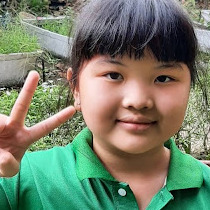
Cha Cha
P2 Student
“ I love Sports Day at SBS because I get to be a cheerleader. Go Green team! ”
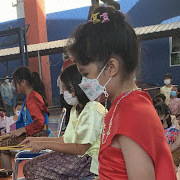
Sainam
P5 Student
“ I like it here because this place has multiple languages. The thing I like most is the last assembly, I really liked the music that I played. ”
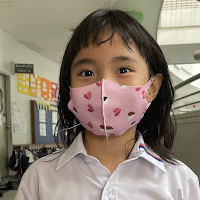
Bua
P2 Student
“ The thing I most like about my school is learning about the Thai language. ”
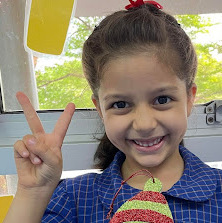
Gaia
K3 Student
“ Going to school is fun, because I have a lot of friends and we get to celebrate Christmas, Halloween and other holidays together. ”
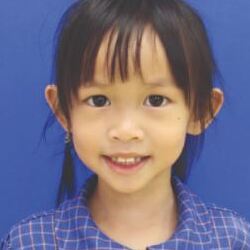
Nalin
K2 Student
“ I like SBS because I can play with my best friend and we have many toys. ”

Daniel
K1 Student
“ I like to play with the toys in class. ”
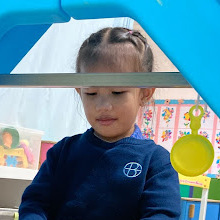
Romie
K1 Student
“ My favorite activity is to pretend play. ”
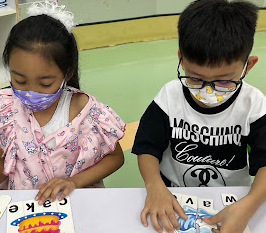
Mookmas and Arpo
K3 StudentS
“ We love to learn and play all day long! ”
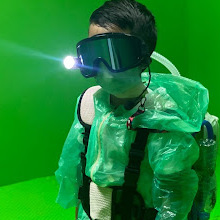
Stan
K3 Student
“ Dress up days are the best! Here is me in a spacesuit. ”
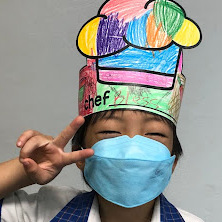
Bless
K2 Student
“ I like to go to school because I have a lot of friends here. Also handcraft activities are so much fun. ”